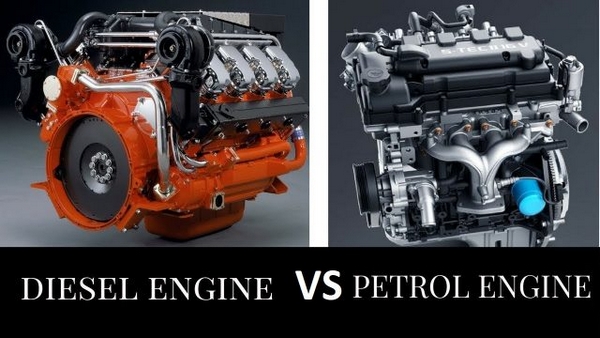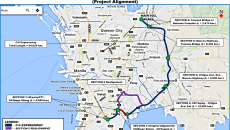CAR TIPS & ADVICE
Diesel engine vs petrol engine: Which should I choose?
Feb 19, 2019
The following article will provide a comprehensive outlook on both diesel and petrol engines.
What are the differences between diesel engine and petrol engine? Pros and cons of each? Those are the common questions of many consumers. The following article will provide a comprehensive outlook on both combustion engines.
1. The differences between diesel engine and petrol engine
Diesel engine uses diesel fuel, does not have a spark plug, and relies solely on compression of fuel and air inside the cylinder to produce power. Meanwhile, petrol engine uses gasoline, and produces power from a spark plug – which ignites the compressed fuel/air mixture inside the cylinder.

What are the differences between diesel engine and petrol engine?
2. A comparison of the operating principles of diesel engine and of petrol engine
|
Stroke
|
Diesel engine
|
Petrol engine
|
|
Intake
|
Fresh air is sucked into the cylinder.
|
A mixture of fuel and air is sucked into the cylinder.
|
|
Compression
|
The air is compressed until it reaches:
P (Pressure) = (30 - 35) Kg/cm²
T (Temperature) = (500 - 600)°C At the end of the compression, fuel is injected into the combustion chamber.
|
The fuel/air mixture is compressed until it reaches:
P = (8 - 10) Kg/cm²
T = (200 - 300)°C At the end of the compression, the spark plug ignites the mixture by an electric spark.
|
|
Power
|
The fuel pumped into the chamber and mixed with high-pressure and high-temperature air is burnt. The burnt mixture expands and produces power for the engine.
|
The spark plug ignites the mixture in the cylinder. After being burnt, such mixture will expands and produces power for the engine.
|
|
Exhaust
|
Exhaust is ejected through the valve.
|
Exhaust is ejected through the valve.
|
3. Strength and weaknesses of diesel engine compared to petrol engine
Strengths
- Higher efficiency: Diesel engine is 1.5 times more efficient than petrol engine.
- Diesel is cheaper than gasoline.
- Diesel engine is more fuel-efficient than petrol engine.
- Diesel engine is safer than petrol engine. In room temperature, diesel does not ignite by itself, hence it is less dangerous.
- Diesel engine suffers from fewer insignificant problems than petrol engine, as it does not have a carburetor and a spark plug.
- Diesel engine is more resilient than petrol engine while enduring overuse.
Weaknesses
- Diesel engine is heavier than petrol engine.
- Production expense of a diesel engine is higher than the expense of a petrol engine, due to the higher engine pressure ratio of diesel hence more complicated components.
- Components of the fuel system of a diesel engine, such as high pressure pump and fuel injector, must have high accuracy (with an error of 1/100mm), therefore the production and repair expense is also higher.
- Fixing components of the fuel system of a diesel engine requires special machines, expensive tools and skilled mechanics.
- Cars using diesel engines are slower than those using petrol engines.
Each has its own advantages and disadvantages. Cars employing petrol engines offer a smoother ride while the ones using diesel engines are more powerful and fuel-efficient. Customers can select the car with the appropriate engine depending on their purposes.
Tags:
-

10 Basic Road Lines Meaning Philippines - Must-know to Drive Safely
-

Car battery lifespan and tips to extend battery life
-

Best Hatchback Cars Philippines Suggestion For You
-

Things You Should Keep In Mind When Buying Used Car
-

Car Conduction Sticker: Where & How Can You Get It In The Philippines?
-

South East Metro Manila Expressway: Route Map & Latest Update
-

LTO RFID Sticker Penalty 2020: Every Driver Should Know
-

Ped Xing Meaning: What Does This Mysterious Sign Actually Mean?




